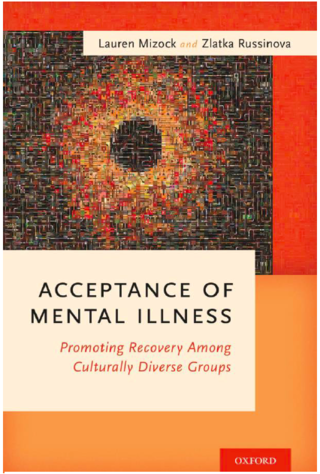Health
Five Tips to Accept a Mental Health Problem
Develop self-awareness with lessons from the research
Posted February 27, 2017

“Understanding is the first step to acceptance, and only with acceptance can there be recovery,” Dumbledore, the headmaster wizard once said in the Harry Potter series. With this quote, author J.K. Rowling tapped into a core truth in the acceptance of a mental health problem… acceptance is key to managing mental health challenges.
My research has found that acceptance is not a simple outcome that is either there or not there. Instead, acceptance is a dynamic process that involves several factors that develop over time. This process requires moving from a passive state of denial to an active position of agency.
How is it done? Here are some central lessons based on research on acceptance.
1. Develop an awareness of the mental health problem and beliefs that support it. The process of acceptance of a mental health problem includes a cognitive piece. Insight is needed to understand that a mental health problem is taking place. Symptoms can get in the way of thinking clearly about what is happening, and they could be lessened through treatment. Or if denial is a problem, it is important to understand what beliefs might add to it. That you can’t live a life of hope and meaning in the face a mental health problem? That you won’t be able to pursue your dreams or feel accepted by others? These beliefs can be challenged in order to better recognize the problem.
2. Create a positive sense of self in the face of a mental health problem. Research has shown that acceptance is also a process of identity development that involves moving past stigma. Why would you accept a mental health problem if you feel society might shun you for having one? Stigma needs to be disputed to allow for a new sense of self to emerge. You can still be a fantastic worker, parent, friend, or community member even with a mental health problem. A mental health problem doesn’t need to define a person, or become central to your identity. However, it does need to be integrated as a part of who you are.
3. Engage in activities that support acceptance. There is also a behavioral aspect to this process. Engaging in certain activities can reflect and reinforce acceptance of a mental health problem. These might be treatment-oriented activities, like taking medication or attending therapy. You might also keep an active schedule and build in positive activities to look forward to during the week. A range of behaviors can keep the mental health problem from taking over and make accepting the problem easier.
4. Focus on relationships that promote acceptance. Supportive relationships are particularly helpful to accepting a mental health problem. Some people may not accept the mental health problem because of their own stigmatizing beliefs. Some people might also benefit from ignoring the problem, or simply be unprepared to accept it. On the other hand, many friends, providers, family members, and others might recognize the presence of a mental health problem and support the management of it. They might offer non-judgmental listening, company to appointments, or general encouragement. Acceptance can be supported by relationships with people who acknowledge the mental health problem.
5. Pursue emotional experiences that boost acceptance. Research shows that people also describe the process of acceptance as an emotional experience. This might involve making room for grief and pain and moving past shame. On a positive side, acceptance can also involve sustaining a sense of happiness and hope. The acceptance process can certainly involve some work, but it can also be a joyful experience that leads to a greater sense of peace.
These tips include a number of aspects of acceptance that take place within the individual. However, acceptance shouldn’t be seen as the sole responsibility of the person, but a process that includes the effort of the general public to overcome stigma and foster mental wellness in our communities. Acceptance is a process that can’t and shouldn’t be done alone.
References
Mizock, L., & Russinova, Z. (2016). Acceptance of mental illness: Promoting recovery among culturally diverse groups. New York, NY: Oxford University Press.


